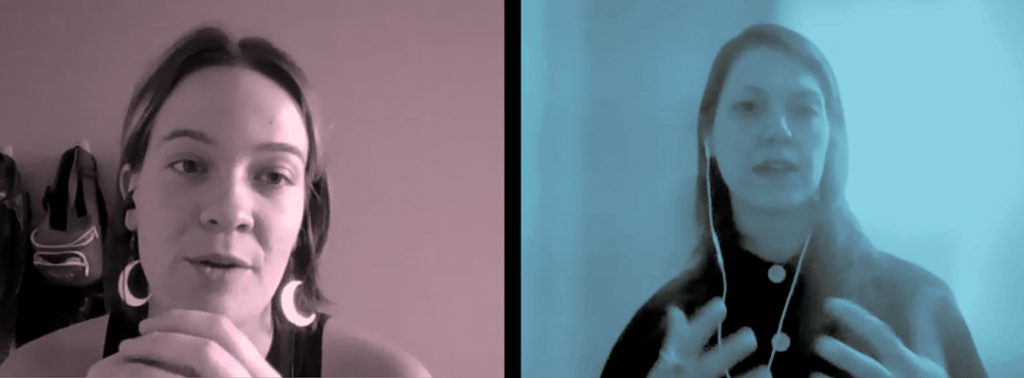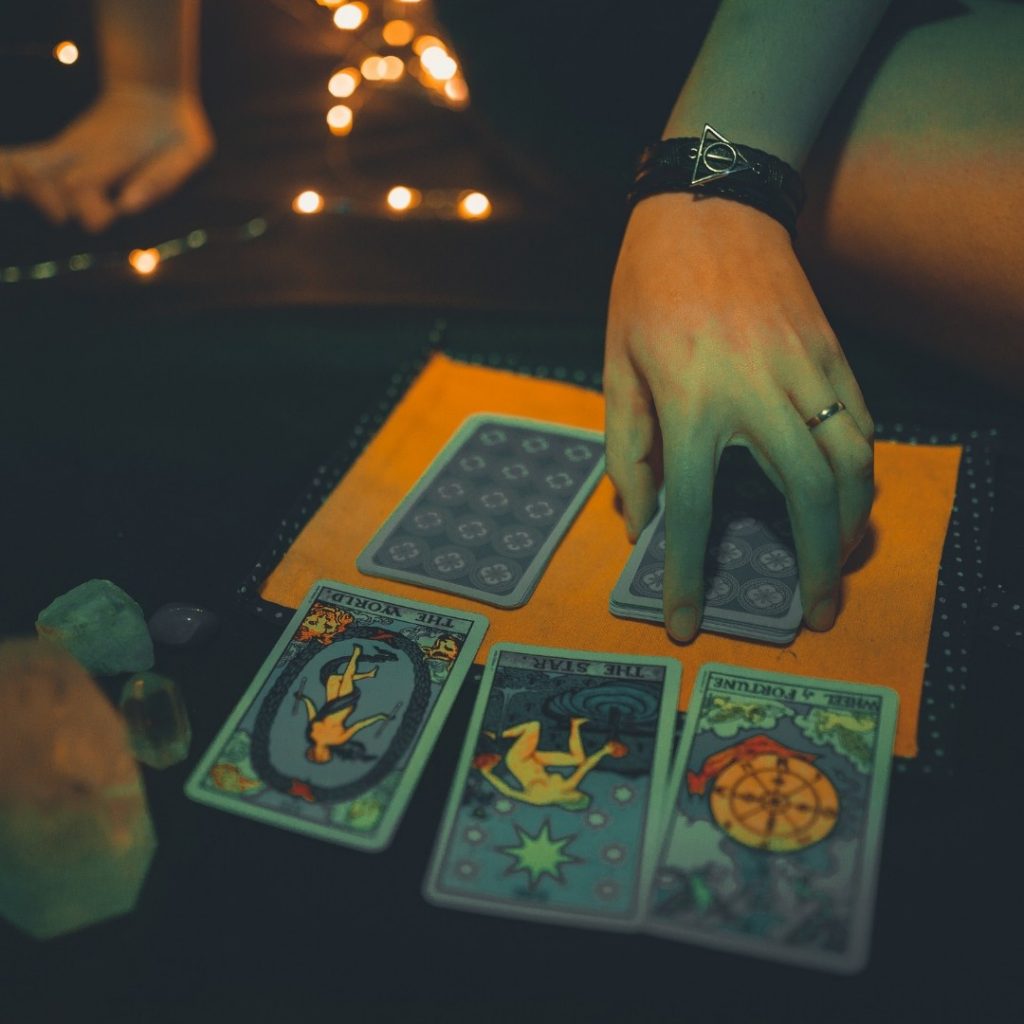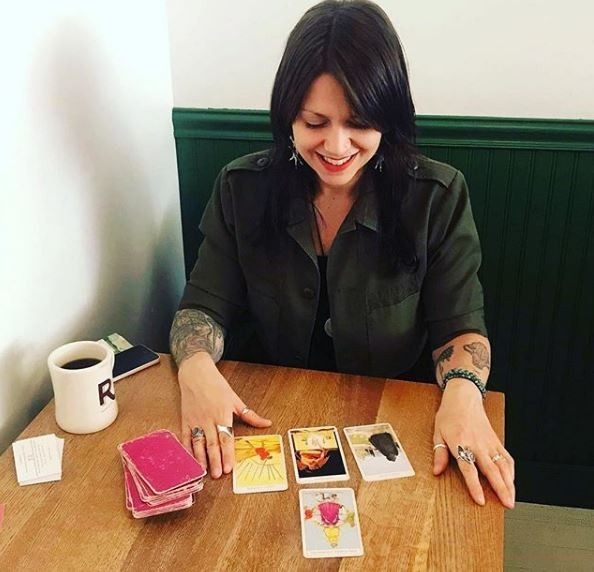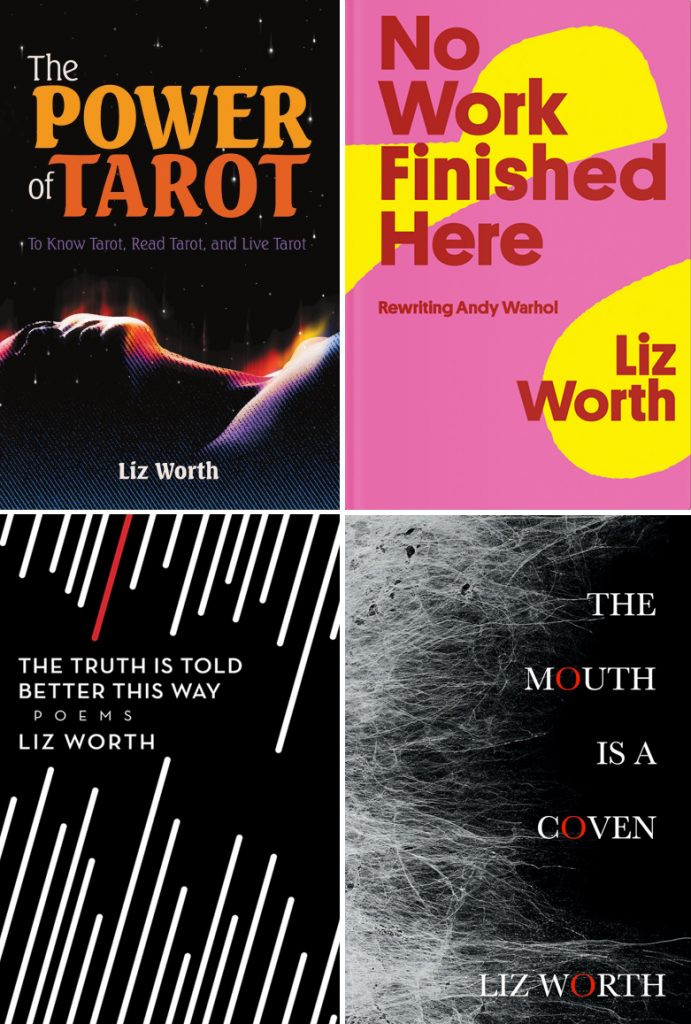Guest editor Taylor Brown had the pleasure of speaking with Hamilton, ON’s Liz Worth — renowned tarot reader, teacher and author. They talked about failing, “raw talent” and she gave what is perhaps the best advice for both writing and reading tarot …

Interview conducted October, 2022
Hello Liz! First and foremost, thanks for taking the time for this interview. Would you be able to introduce yourself to our readers?
My name is Liz Worth, and I am a tarot reader and an author. I connect to tarot in a way that I think is quite practical: my aim when I work with clients is that I want tarot to be helpful for them; I use divination as a way to help people find answers for things that are happening in their day-to-day life. I also teach tarot, where my aim is typically to help people learn to read for others.

What initially drew you to tarot?
When I was still in my teens, I bought myself a tarot deck but I didn’t really know what to do with it at the time. Tarot is quite complex in a lot of ways; there are a lot of different components to learn, and I didn’t know that it wouldn’t just happen instantly. I was a teenager and I was impatient, like a lot of people are at that age. I thought that if I just flipped over some cards, I would somehow know what they were telling me, and I didn’t realize that you actually have to acquire a skill when it comes to reading tarot.
I came back to them later, because I was looking for something. I had just published my first book, Treat Me Like Dirt: An Oral History of Punk in Toronto and Beyond 1977-1981 (Bongo Beat Books, 2009) and I felt really lost after that book came out because I had put a lot of time and effort into writing this big project and it got published, and when you write your first book (or maybe any book), no one tells you that you’re going to feel really kind of lost after as to what to do with yourself. I really missed working on it, to be honest. I was looking for something to fill these gaps that I was feeling and that’s when I came back to tarot — it really gave me something that was inspiring. It was challenging. It was also really creative, really pushed me to learn things in in different ways and look at art in different ways as well.
How does tarot effect your writing?
I think that it’s the other way around, for me personally. I think that writing impacts my tarot reading. Because, you know, even though I was always interested in divination and intuitive practices, it was through writing that I really felt like I was connecting to an intuitive process.
I find that reading tarot is very similar. Tarot is a creative process. We talk about it as something psychic or intuitive, and it can be to a certain extent, but I find that it actually uses a lot of the same muscles that I use when I’m sitting down to write something. When I’m looking at tarot cards, I’m looking at pieces of art. People have created these cards, they’ve come from someone else’s visual expression and visual inspiration, and I’m looking at these pieces of art and I’m finding patterns and narratives and meaning in them. I might look at the same tarot deck for years and years and years, but every time I look at those cards I have different answers, and they have different things to talk about, and somehow looking at a disparate set of images comes together in a way where I’m able to channel an answer that’s relevant to the person that I’m reading for, similar to how I might channel a piece of writing that’s relevant to whoever is going to read it.

What can tarot teach us about creative processes? What lessons can we glean from this practice?
One thing that tarot can teach us is that it’s okay to fail forward. I talk about this a lot when I teach people tarot — this idea of failing forward or falling forward with what you’re doing. A lot of the time, people are scared to read tarot because they don’t want to be wrong, who wants to be wrong? We all want to be perfect with everything we do the first time around and it’s the same when we’re creating a piece of art. Everyone who’s writing a novel wants to write a perfect first draft that also becomes the final draft; it would be so much easier, way less time intensive, a lot less emotionally taxing … but it doesn’t work like that, right?
When you’re working with tarot, especially if you’re learning how to read the cards, you have to be willing to be wrong first in order to be right later on. There’s a lot of trial and error, it’s a lot of practice, and the readers who are willing to go out on a limb and say something that might not land with the person they’re reading for, or give a prediction or an insight that might be completely off base, those are the readers who, if they listen to the feedback and are willing to correct their interpretations, and to see what they could do better next time, those are the readers who go on to read tarot really, really well. It’s the same when you’re creating something. If we’re willing to write that shitty first draft, and then go back and rework it and see what we can do better, then we end up with a book or a manuscript that feels really good to us. It’s that willingness to just go into those places where maybe your work might be ugly. It might be uncomfortable. It might be unpleasant. It might not be articulating what you have in your mind just yet. But if we’re not willing to let ourselves make those mistakes, to show up anyway and try and experiment, then we end up in the same place where we began.
I love the way you describe reading as a receptive process, where you take in the Querent’s feedback and understand where it fits in with your reading, because like you said, your first draft isn’t going to be your final draft. That’s such a valuable lesson, especially in tarot and writing.
With all kinds of art, we always have to be developing our skills, right? I think that another parallel that I see with tarot and creativity is this idea of “raw talent.” A lot of people assume that painters, actors, writers, or any other types of artists, have some kind of innate natural ability to just create these beautiful works of art, without realizing that you could have raw talent, but there’s always opportunity to develop that and often people who have raw talent spend a lot of time refining that talent. They don’t take the first iteration of what they’re able to do and end there.
There are a lot of assumptions that tarot is something that you have to be born into, or that you need to be naturally able to take to it right away. A lot of people end up being deterred from using tarot because they think, “I’m not intuitive, I’m not psychic, I don’t see things, I look at the cards and I don’t know what to make of them.” That’s okay, because it’s an acquired skill, right? Even if you are naturally intuitive, I would hope that you don’t just stop there because there are a lot of ways that we can develop as people along the way that make us better listeners, better conversationalists, better card readers in the process of learning tarot.
Is there a particular card that resonates with you right now?
I feel very drawn to the aces because I’m in this emergent phase in my life right now, with a lot of new things — aces are always so great for new beginnings and new pathways as well. I love the excitement of change. There are a lot of cards in tarot that indicate change but the aces are particularly interesting, because the capacity for change is so often in your hands with those cards. Transformation is always possible, but it depends on where you take it.

On the topic of aces, new projects, things coming up, where can our readers support your work?
If they’re interested in my tarot work, they can go to lizworth.com or they can follow me on Instagram @lizworthtarot; if they’re interested in my writing, I have a new novel that just came out called The Mouth is a Coven (Manta Press, 2022), which is an occult-inspired vampire novel.


